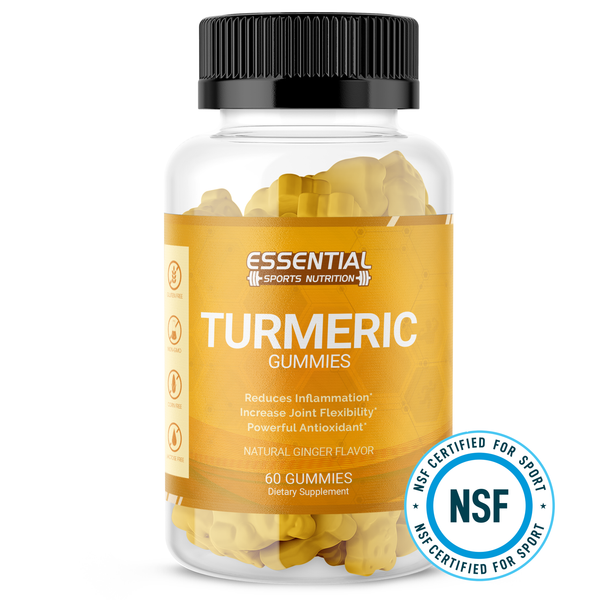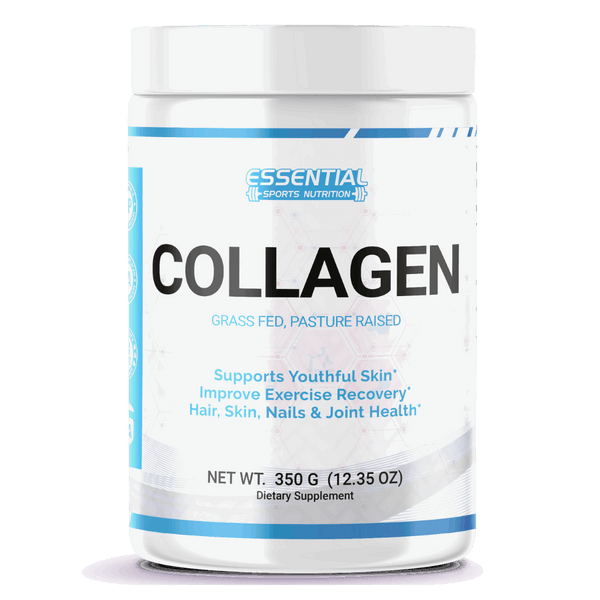In the quest for optimal health and nutrition, many people find themselves comparing the benefits of different superfoods. If you're trying to choose between chlorella and spirulina, you might be wondering which blue-green algae packs a heftier punch in terms of nutritional value.
These freshwater wonders are celebrated for their dense concentration of vitamins, minerals, and proteins, but how do they really stack up against each other?
Here's an important fact: While both offer impressive arrays of nutrients with numerous antioxidants like carotenoids and phenolic compounds, chlorella edges ahead with higher levels of certain essentials such as Vitamin A and iron.
This detailed comparison between these two algae titans will help demystify their nutritional profiles and highlight their unique advantages for your health.
Key Takeaways
- Chlorella has more vitamin A and iron than spirulina, making it really good for detoxing your body.
- Spirulina is packed with protein and can help keep your heart and brain healthy.
- Both superfoods are full of vitamins, minerals, and antioxidants to help you stay strong.
Overview of Chlorella and Spirulina
Chlorella and Spirulina, both renowned for their nutritional prowess, are microalgae that offer a plethora of health benefits rooted in their dense concentration of vitamins, minerals, and proteins.
Let's delve into the specifics of these freshwater and saltwater superfoods to understand how they stand apart and what makes them valuable additions to a balanced diet.
Definition and types of Chlorella and Spirulina
Chlorella is a type of green freshwater algae. It's small and shaped like a ball. This algae is known for having lots of chlorophyll, which gives plants their green color and helps them use sunlight to make food.
There are many kinds of chlorella, but the most common one used for health is called Chlorella vulgaris.
Spirulina is different from chlorella; it's a blue-green algae that grows in both fresh and salt water. Its scientific name is Arthrospira, but we call it spirulina as well. Spirulina has long, spiral-shaped cells and it's famous for its nutrition power.
People add this superfood to things like smoothies and bars because it’s packed with good stuff our bodies need.
Nutritional Facts of Chlorella and Spirulina

Delving into the nutritional profiles of Chlorella and Spirulina reveals a dense concentration of vitamins, minerals, and proteins that are essential for optimal health, sparking curiosity about how these superfoods can enhance one's diet.
Comparing the nutritional content that Spirulina and Chlorella contain
The nutritional profiles of Chlorella and Spirulina are remarkable, showcasing a dense concentration of vitamins, minerals, and proteins. Here is a detailed comparison:
| Nutrient | Chlorella | Spirulina |
|---|---|---|
| Protein | Up to 60% protein content, possibly 10% more than Spirulina | Approximately 50-70% protein content |
| Omega-3 fatty acids | Higher omega-3 content | Lower omega-3 content |
| Vitamin A | Significantly higher levels of Vitamin A | Contains Vitamin A, but less compared to Chlorella |
| Riboflavin (Vitamin B2) | Rich in riboflavin | Contains riboflavin, yet in smaller amounts |
| Iron | Much higher levels of iron | Contains Iron, but less than Chlorella |
| Magnesium | More magnesium present | Lower levels of magnesium |
| Zinc | Contains higher amounts of zinc | Provides zinc, but not as much as Chlorella |
Chlorella emerges as the more nutritionally dense option, particularly for those seeking higher levels of certain vitamins and minerals. Spirulina, while also nutrient-rich, offers a slightly different composition, making both algae beneficial in a balanced diet.
Health Benefits of Chlorella and Spirulina

Chlorella and Spirulina stand out in the world of superfoods, offering a wealth of health benefits ranging from enhancing immune function to improving heart health. They have garnered attention for their potential to assist in areas such as detoxification, managing blood sugar levels, and contributing to overall nutritional balance.
The health benefits of consuming Chlorella and Spirulina
Chlorella and spirulina pack a punch with their health perks. They bring lots of good things to your body because they have so many nutrients.
- They are super at detoxing. Both help clean out harmful stuff from your body.
- These superfoods can make your heart happy. They work on the fats in your blood and keep your blood pressure in check.
- Full of protein and amino acids, they give your body the building blocks it needs.
- Chlorella and spirulina boost your immune system. This helps you fight off sickness and stay healthy.
- Brain power gets a lift from these green wonders. They help your brain work better and keep it sharp.
- If you're looking to eat less meat, these can be great protein sources for a plant - based diet.
- For people who want more omega - 3s but don't like fish, chlorella is full of these helpful fats.
- These algae champs are strong antioxidants. They fight oxidative stress that can harm cells in your body.
- Feeling tired? Spirulina's iron content can help you feel more energetic and lively!
- Your digestion might get better too because they support good gut health.
Similarities and Differences between the Alga: Chlorella and Spirulina

Chlorella and Spirulina both stand out as nutrient-dense superfoods with a rich profile of vitamins, minerals, and antioxidants; however, they exhibit distinct differences in their cellular structure, pigment composition, and specific health benefits.
This section delves into the unique attributes that set these powerhouse algae apart while also acknowledging the common advantages they offer to those seeking a boost in nutrition from natural sources.
Discussing the main similarities and differences between Chlorella and Spirulina
Exploring the main similarities and differences between Chlorella and Spirulina offers insight into their unique nutritional profiles and potential health benefits. These two types of algae are often compared due to their high nutrient content and status as superfoods. The following table provides a concise comparison:
| Aspect | Chlorella | Spirulina |
|---|---|---|
| Type of Algae | Green algae | Blue-green algae |
| Color | Bright green (due to high chlorophyll) | Blue-green |
| Omega Fatty Acids | Higher in omega-3 | Higher in omega-6 |
| Nutrient Comparison | Lower in copper and vitamin B1 than Spirulina | Higher in copper and vitamin B1 than Chlorella |
| Chlorophyll Content | High chlorophyll content | Lower chlorophyll content compared to Chlorella |
Both superfoods offer a range of vitamins, minerals, and antioxidants, yet they differ significantly in their specific nutritional offerings and the balance of certain fatty acids. Such information is critical for individuals tailoring their diets to specific health needs or nutritional goals.
Chlorella, Chlorophyll, and Spirulina: Understanding the Differences

Chlorella is a type of green algae that packs a big health punch. It has lots of chlorophyll, the green stuff in plants that helps them turn sunlight into energy. This makes chlorella a supergreen food, with up to 10 times more chlorophyll than spirulina! People love chlorella because it's full of omega-3 fatty acids, vitamin A, and other goodies like riboflavin and iron.
Spirulina is different—it's not an algae but a cyanobacterium, which is often called blue-green algae. Spirulina stands out for its high protein content. It also has phycocyanin, which gives it a unique blue color and helps fight inflammation in your body.
Unlike chlorella, spirulina contains less chlorophyll but offers essential amino acids and other nutrients important for your health.
Conclusion
Overall, both chlorella and spirulina pack a big health punch. These tiny algae have lots of protein, vitamins, and other good stuff for your body. Remember how chlorella helps detox and adds omega-3 fats? And spirulina is great for your heart and brain.
Think about how you can use them in your meals or smoothies. They're easy to fit into a healthy diet. Try adding these green powerhouses to your next snack!
Chlorella vs Spirulina FAQs
Q: What is the difference between chlorella and spirulina?
A: Chlorella and spirulina are both types of algae with their own unique nutritional profiles. Chlorella is a green freshwater algae while spirulina grows in saltwater. While both are rich in nutrients, chlorella contains more chlorophyll, omega-3 fatty acids, B12, and iron; spirulina contains more protein and essential amino acids.
Q: What are the health benefits of chlorella and spirulina?
A: Both chlorella and spirulina are known for their numerous health benefits, including improving heart health, providing antioxidant support, and boosting the immune system. They may also help in detoxification and provide essential nutrients to the body.
Q: What nutrients do chlorella and spirulina contain?
A: Chlorella and spirulina are both rich in nutrients such as protein, vitamins, minerals, and antioxidants. They also contain essential fatty acids, chlorophyll, and other beneficial compounds that support overall health.
Q: Are there any differences in the nutritional profile of chlorella and spirulina?
A: Yes, there are differences in the nutritional profiles of chlorella and spirulina. For example, chlorella contains more omega-3 fatty acids and chlorophyll, while spirulina is higher in protein and essential amino acids.
Q: Can chlorella and spirulina help improve heart health?
A: Yes, both chlorella and spirulina may help improve heart health due to their antioxidant properties, ability to reduce inflammation, and support in maintaining healthy cholesterol levels.
Q: Do chlorella and spirulina supplements contain heavy metals?
A: It is crucial to choose high-quality supplements. While chlorella and spirulina are both capable of binding to heavy metals and aiding in detoxification, the source and production methods of supplements can impact their heavy metal content.
Q: Which one is better, chlorella or spirulina?
A: The choice between chlorella and spirulina depends on individual health goals and nutritional needs. Chlorella may be preferred for its higher omega-3 content, while spirulina could be chosen for its higher protein and essential amino acid content.
Q: How do chlorella and spirulina support overall health?
A: Chlorella and spirulina support overall health by providing essential nutrients, antioxidants, and potential detoxification benefits. They may also aid in promoting immune function, boosting energy levels, and enhancing the body's natural defense mechanisms.
Q: Are there any potential risks associated with consuming chlorella and spirulina?
A: While chlorella and spirulina are generally safe for most people, it is important to be cautious when selecting supplements and to consult with a healthcare professional, especially for individuals with specific health concerns or allergies.
Q: How can chlorella and spirulina supplements be incorporated into a daily routine?
A: Chlorella and spirulina supplements are available in various forms such as capsules, tablets, and powders. They can be easily incorporated into a daily routine by adding them to smoothies, juices, or simply taking them with water or a meal to reap their health benefits.
Q: Can either chlorella or spirulina help with heart disease?
Yes, they can! Chlorella has properties that may assist with lowering cholesterol profiles linked to heart disease risk. Spirulina contains essential fatty acids like omega-3s which also support heart health.
Q: Do these algae support brain function?
Absolutely! The omega-3 fatty acids in spirulina aid in brain function and cell growth. Additionally, the range of B vitamins found in both chlorella and spirulina contributes to healthy brain activity.
Q: Should people with diabetes consider taking chlorella or spirulina supplements?
Individuals managing type 2 diabetes could benefit from including these supplements as part of their diet due to their potential effects on insulin sensitivity and blood sugar management.
Q: Are there any skin benefits from using chlorella or spirulina?
Yes! Chlorella promotes clear skin through its detoxification capabilities such as heavy metal chelation that cleanses toxins from the body while the anti-inflammatory properties of both algae may soothe the skin.
Q: Is it safe for everyone to take these algae supplements?
While many can safely add these superfoods to their diets, those on blood thinners or who have autoimmune conditions should consult healthcare providers before supplementation due to possible adverse interactions.























